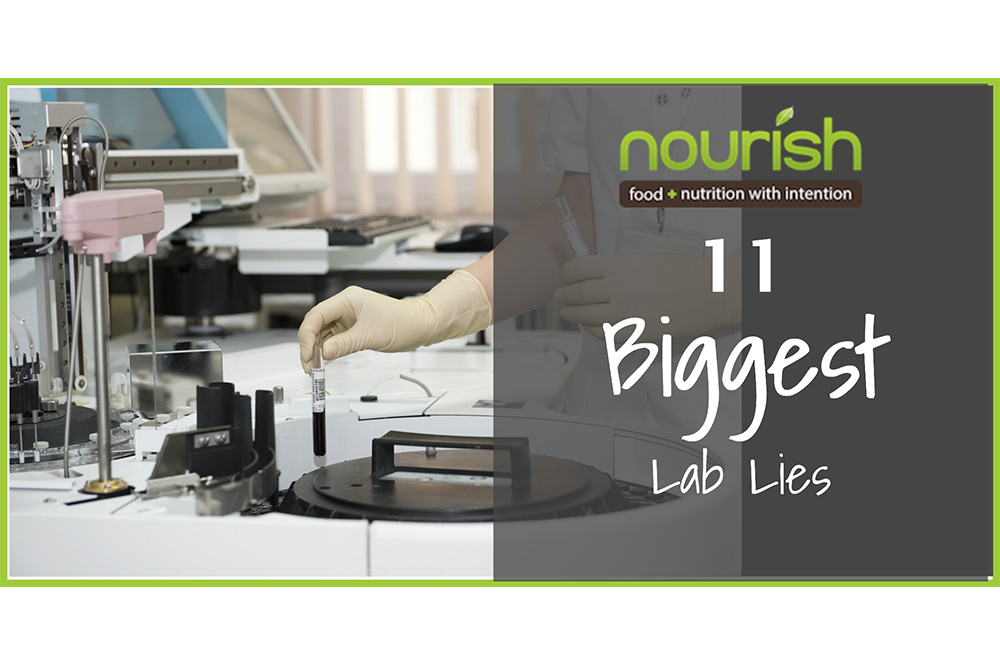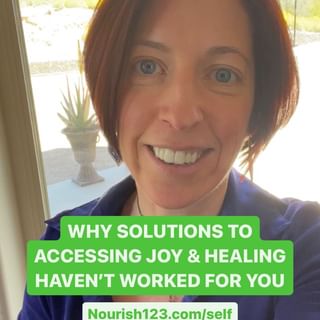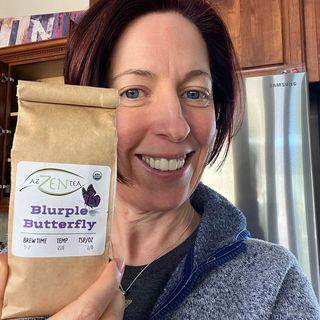Here are the 11 Biggest Lab Lies that can get in the way of true healing…
1 – Normal is Healthy
Normal isn’t necessarily healthy. Just because results are common, doesn’t mean they are healthy or optimal. If you are symptomatic, even if your labs show “normal range” your body is communicating that something is out of whack. Labs are simply one piece of the puzzle and aren’t the whole story.
2 – You’re Not Sick Unless the Labs are Out of Range
Just because labs are “normal” doesn’t mean everything is ok. Typically, there are several steps the body goes through including cellular damage, tissue damage, and organ damage before many of the labs would present as “out of range.” The “normal range” for labs is based on 95% of the population. Meaning, that if you are out of range on the high or low side, you are falling into a small percentile of 5% of the general public. What you really want is to be in the “optimal range” to ensure better health over all and most practitioners are only looking at the average range.
3 – Symptoms are Irrelevant
Symptoms are your body’s way of communicating with you. In our fast-paced, go-go-go!, hyper-connected world, the connection between the body, mind, and soul has been ripped apart and the communication is broken. The typical healthcare (sickcare) model relies heavily on labs and medications, but disregards symptoms as a significant piece of the healing puzzle. Go back to basics and listen and really hear what your body is telling you. If it’s showing up with symptoms, it’s communicating with you. Take a beat and listen….
4 – Labs Must Be Rerun Frequently
Labs are simply a moment in time. Running them more often doesn’t necessarily give you better information. It takes a while for symptoms and labs to catch up to each other. Getting more in tune with the body and having a better understanding of what the body is trying to communicate rather than simply relying on labs will have more of an overall impact on health. We find that most people are so disconnected with themselves and what the body is trying to communicate that they miss obvious signs. Relying more on the communication of the body rather than frequent labs often gives a much better picture of how to shift to give the body what it needs.
5 – Expensive Labs are Better
It’s not the cost of the labs, that’s important, it’s what the labs will tell you about the underlying cause of your symptoms and how the labs are being interpreted.
6 – Only A Doctor Can Run Labs
A certified practitioner can also run labs and in many cases you can run labs on your own. What’s most important, is having a practitioner who can effectively read your labs, interpret information to identify underlying causes, and to see ahead for challenges you may be trending towards so you can head them off before they become an issue.
7 – Chasing the Lab is the Best Way
Labs often make people feel like they’re “doing something” about their symptoms. Unless the right labs are run and interpreted correctly, you won’t get the information you need. “Chasing the lab” means that based on one lab result, you’ve been prescribed medication and then 3-6 months later, your doc will insist on running labs again to see how the medication is impacting your body and if your meds need to be adjusted. Then, every 3-6 months, the lab will be run again to see how the medication is impacting your body. As long as the numbers fit the exact box the doctor wants to see on the lab, then pharmaceutical dosing will stay consistent. It takes awhile for the labs to catch up to the changes in your body. Unfortunately, because you’re medicated, the labs no longer tell the whole story. You need to take into account symptoms and how much your body is pushing back on the foreign substance (medication) that is now in your system. The labs aren’t giving a good account of how your body is doing and if it’s healing.
8 – Diagnosis is More Important than Root Cause
The medical community loves to name things, but they don’t love to dig deep and find the real reason for symptoms and disease. Only when you can uncover the underlying reasons for your symptoms can you stop your challenges and finally get into the right place to heal.
9 – Only A Doctor Can Interpret Labs
Did you know: lab companies have practitioners on staff to help doctors interpret labs. This means your doc is most likely getting outside help and input from other practitioners to interpret your results. Having a specialist who knows what they’re looking for, how to properly interpret your lab results, and how to look for trends (not just what is “out of range”) will help you focus on stopping the underlying causes of your symptoms and disease.
10 – Testing Antibodies Doesn’t Matter
Most docs don’t like to test for autoimmune antibodies because their treatment plan wouldn’t change no matter what the results. When you have autoimmune disease, the body is attacking cells and tissues in the body faster than the body can produce healthy cells and tissues. Doctors are trained to treat the part of the body where the cells and tissues are being destroyed, rather than focusing on the immune system that is creating the attack. When antibodies show high on test, it shows that the immune system is in attack mode, but since most docs don’t focus on the immune system, they don’t feel there’s any reason to run those tests. So, unfortunately, you don’t get the whole story and you don’t know if your efforts are helping to slow or stop the immune system from attacking you and causing damage. As a result, this means that you will not be able to heal.
11 – Food Sensitivity Testing Isn’t Always Reliable
The real issue with food sensitivity testing is:
a. Most practitioners don’t know how to properly interpret the various different food sensitivity test results
b. Even when the results are interpreted correctly, many practitioners don’t use an effective protocol for healing the gut and reintroducing foods.
c. Most practitioners don’t have a solid plan to help you once they have interpreted the results, so most people feel like they are dangling on their own trying to sort through the restrictions and trying to figure it out with no support.
If you find that too many of the points above are ringing true, and want to discuss a plan to help you support your body and give it what it needs so it can HEAL without the need for prescriptions, CLICK HERE pop yourself onto our calendar and we’ll chat.










